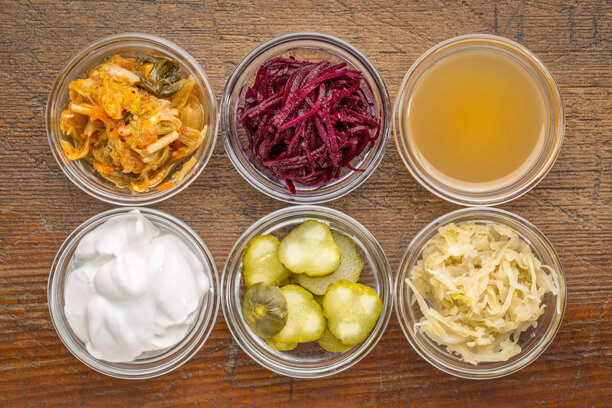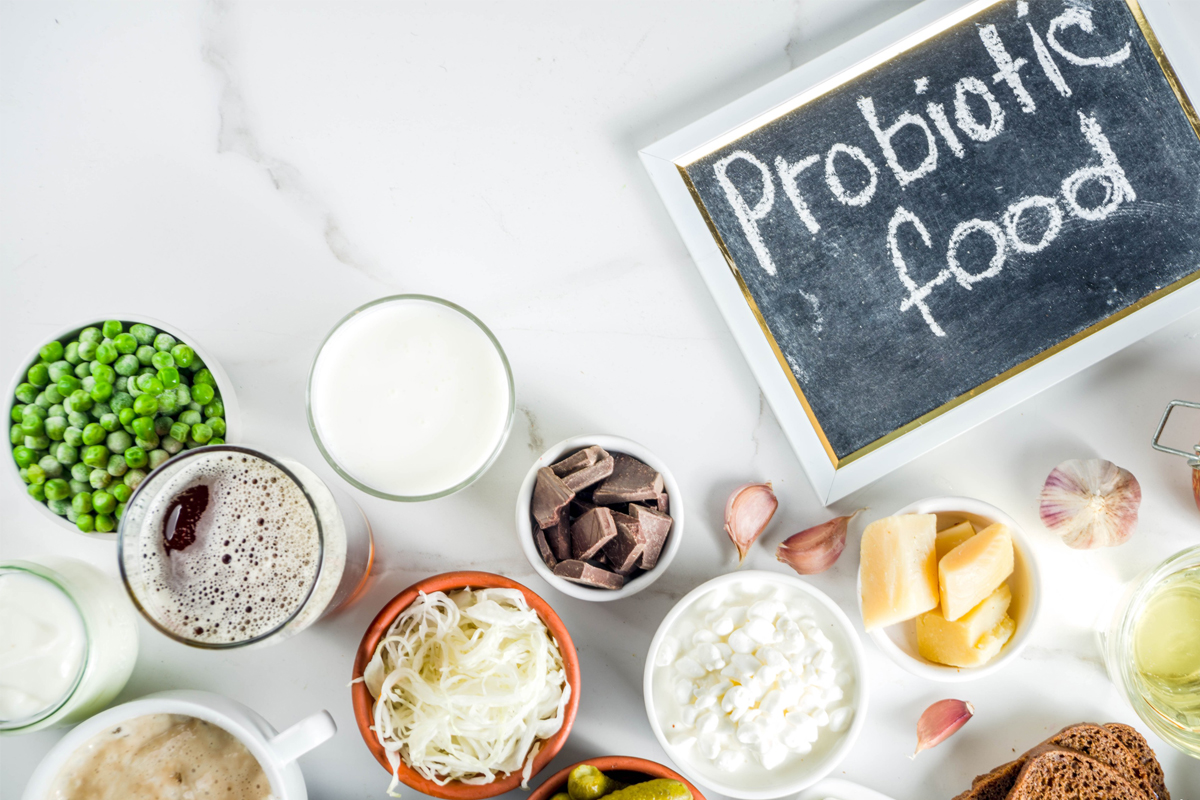As a dietitian, I often get asked about the benefits of probiotics and the foods that contain them. Probiotics are live microorganisms that can provide health benefits when consumed in adequate amounts. They are commonly found in fermented foods and supplements and have been associated with improved digestive health, immune function, and overall well-being.
Here are some probiotic-rich foods and their benefits:
- Yogurt is one of the most well-known probiotic-rich foods and is made by fermenting milk with live bacteria cultures. Yogurt has been shown to improve digestive health, boost immunity, and can even aid in weight loss.
- Kefir is a fermented milk drink that is similar to yogurt but contains a wider variety of probiotic strains. It is made by adding kefir grains, which are a combination of bacteria and yeast, to milk. Kefir has been shown to improve digestion, reduce inflammation, and even lower cholesterol levels.
- Kimchi is a traditional Korean side dish made by fermenting vegetables such as cabbage, radish, and scallions with chili peppers, garlic, and other seasonings. It is rich in probiotics and has been shown to improve gut health and boost immunity.
- Kombucha is a fermented tea drink that is made by adding a symbiotic culture of bacteria and yeast to sweetened tea. It is rich in probiotics and has been associated with improved gut health, reduced inflammation, and even lower blood sugar levels.

- Sauerkraut is a traditional German dish made by fermenting shredded cabbage with salt. It is rich in probiotics and has been associated with improved digestion and reduced inflammation.
- Pickles, which are made from various vegetables and spices, are often fermented and contain probiotic bacteria. Mango pickle, lemon pickle, and mixed vegetable pickle are some popular varieties.
Probiotics work by improving the balance of healthy bacteria in the gut, which can help with digestion and nutrient absorption. They may also help to boost the immune system, reduce inflammation, and even improve mood.
While consuming probiotic-rich foods can be beneficial for most people, it’s important to note that certain individuals may not be able to tolerate them, such as those with lactose intolerance or a sensitivity to histamine. Additionally, it’s essential to choose probiotic-rich foods that are minimally processed and free from added sugars or artificial ingredients.
Incorporating probiotics into your diet can be as simple as enjoying a serving of yogurt or kefir each day, or adding fermented vegetables to your meals. As with any dietary change, it’s important to speak with a healthcare professional before making any significant changes to your diet.
In conclusion, probiotics can be a valuable addition to a healthy diet and can provide numerous health benefits. By incorporating probiotic-rich foods into your meals, you may be able to improve your digestion, boost your immune system, and enhance your overall well-being.
Reference:
- Marco, M. L., Heeney, D., Binda, S., Cifelli, C. J., Cotter, P. D., Foligné, B., … & Hill, C. (2021). Health benefits of fermented foods: microbiota and beyond. Current Opinion in Biotechnology, 70, 1-8.
- Cani, P. D., Neyrinck, A. M., Fava, F., Knauf, C., Burcelin, R. G., Tuohy, K. M., … & Delzenne, N. M. (2007). Selective increases of bifidobacteria in gut microflora improve high-fat-diet-induced diabetes in mice through a mechanism associated with endotoxaemia. Diabetologia, 50(11), 2374-2383.
- Kechagia, M., Basoulis, D., Konstantopoulou, S., Dimitriadi, D., Gyftopoulou, K., Skarmoutsou, N., & Fakiri, E. M. (2013). Health benefits of probiotics: a review. ISRN Nutrition, 2013.
- Singh, A., Sharma, R. K., & Malhotra, S. (2019). Probiotics: A comprehensive approach toward health foods. In Advances in Food and Nutrition Research (Vol. 89, pp. 293-348). Academic Press.
